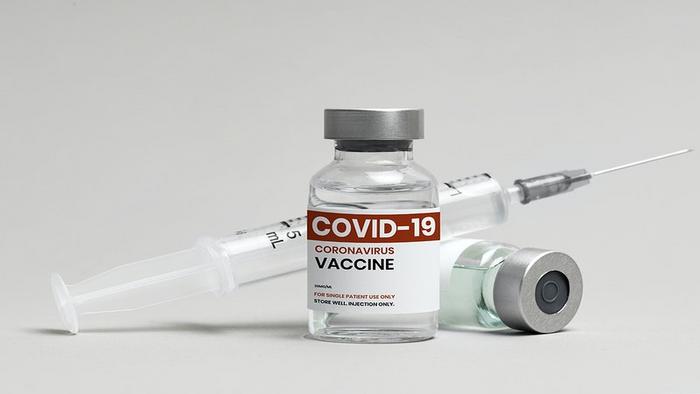FOR IMMEDIATE RELEASE

Credit: Public Domain Image
FOR IMMEDIATE RELEASE
People who have received solid organ transplants and take immunosuppressant medications to prevent rejection are among those most susceptible to the damaging effects of COVID-19, including breakthrough infections, severe illness, hospitalization and death. Particularly dangerous for them has been the XBB.1.5 subvariant of the omicron strain of SARS-CoV-2, the virus that causes COVID-19. That’s because XBB.1.5 possesses a genetic mutation that enables it to more effectively bind with cells it attacks, and therefore, make it more transmissible than earlier SARS-CoV-2 strains.
In a study published today in the journal Clinical Infectious Diseases, a Johns Hopkins Medicine research team reports that for XBB.1.5, there is good news for solid organ transplant recipients (SOTRs) and other immunocompromised people who receive regular booster doses of a messenger RNA (mRNA) bivalent vaccine (a vaccine designed to enhance immunity to a variety of SARS-CoV-2 strains).
“We found that a SOTR’s ability to neutralize XBB.1.5 wanes at about three months following the first bivalent booster shot, but improves with a second booster to about the previous level,” says study senior author Andrew Karaba, M.D., Ph.D., assistant professor of medicine at the Johns Hopkins University School of Medicine and an infectious diseases expert with the Johns Hopkins Transplant Research Center. “This indicates that repeated boosting within six months may play a role in reducing infections, particularly among populations at highest risk, such as SOTRs.”
Bivalent mRNA vaccines, such as the ones used in this study, introduce the body’s immune system to spike proteins found in different strains of SARS-CoV-2. Found on the surface of the virus, the spike protein enables the virus to latch onto healthy cells and infect them. Antibodies, produced by the immune system in response to spike proteins in a bivalent vaccine, neutralize the virus particles. This, in turn, prevents infection or, at least, reduces the severity of the disease.
“Previous studies have shown that for immunocompromised populations — such as SOTRs taking immunosuppressant medications to lower the risk of organ rejection — a single bivalent vaccine boosted virus neutralization, but the duration of that boost was unknown,” says study co-author William Werbel, M.D., Ph.D., also an assistant professor of medicine at the Johns Hopkins University School of Medicine and an infectious diseases expert with the Johns Hopkins Transplant Research Center. “What we wanted to learn was how long the boost lasted and if a second booster would build that immunity back up.”
The researchers studied 76 SOTRs who had received a minimum of three doses of a primary monovalent (active against just the original SARS-CoV-2 strain) mRNA vaccine, reported receiving either one or two bivalent mRNA vaccine boosters (containing both the original strain and the omicron BA.5 variant), and provided two or more blood samples that were obtained pre- and post-bivalent booster in one of three groups: 59 paired samples taken before and after the first booster, 31 paired samples taken before and after the second booster, and 14 paired samples taken before and after both boosters.
The study participants were generally middle age, more than five years post-transplant, and were kidney and/or liver transplant recipients. Fourteen had evidence of COVID-19 before the first booster, while 16 developed COVID-19 between the first booster and one month past the second.
The researchers found that the amount of circulating antibody and, in turn, virus neutralization, significantly increased by one month after the first bivalent booster for both the BA.5 and XBB.1.5 strains of SARS-CoV-2. However, this dropped sharply to nearly the pre-booster levels at three months, and even more so at six months.
Following a second bivalent booster, many SOTRs regained the ability to neutralize both virus strains; yet 42% did not have any detectable immunity to XBB.1.5. The researchers found that those SOTRs were more likely to be receiving corticosteroids as part of a three-drug immunosuppression regimen. They also discovered that, at nearly all times post-vaccinations (monovalent plus bivalent boosters), SOTRs with no prior SARS-CoV-2 infection showed poor XBB.1.5 neutralization, and at levels far below those who had hybrid (infection and vaccination) immunity.
“Our findings indicate that repeat boosting with omicron-containing vaccines may improve protection against COVID-19 among SOTRs, but more frequent boosting — every three to six months — appears necessary to maintain neutralizing ability against the more recent omicron subvariants, such as BA.5 and XBB.1.5,” says Karaba. “We believe this is especially important for SOTRs and other immunocompromised groups, and particularly for those who do not have hybrid immunity.”
Werbel adds that this practice is already showing benefit for another population at higher risk of SARS-CoV-2 infection, people age 65 or older.
“Our recommendation for immunocompromised groups is concordant with recent guidelines from the U.S. Centers for Disease Control and Prevention stating that people in this age group should get an additional updated vaccine at four months or longer from their last dose,” he says.
Along with Karaba and Werbel, the members of the study team from Johns Hopkins Medicine are Aura Abedon, Jennifer Alejo, Andrea Cox, Yolanda Eby, Snigdha Panda and Aaron Tobian, and study lead authors Camille Hage and Scott Johnston. The team also includes former Johns Hopkins Medicine transplant surgeon Dorry Segev, now with the NYU Grossman School of Medicine.
The work was supported by National Institute of Diabetes and Digestive and Kidney Diseases grant 5T32DK007713; National Institute of Allergy and Infectious Diseases grants K24AI144954, U01AI138897, 3U01AI138897, K08AI156021 and K23AI157893; the Ben-Dov family and the Trokhan Patterson family.
Werbel has received consulting and/or speaking fees from AstraZeneca, GlobalData, the China Medical Tribune and the Medical Learning Institute, and advisory board fees from AstraZeneca and Novavax. Karaba has received consulting fees from Hologic Inc. and speaking fees from PRIME Education. Segev reports receiving consulting and/or speaking honoraria from Sanofi, Novartis, Veloxis, Mallinckrodt, Jazz Pharmaceuticals, CSL Behring, Thermo Fisher Scientific, Caredx, Transmedics, Kamada, MediGO, Regeneron, AstraZeneca, Takeda/Shire, Novavax and Bridge to Life.
The other study authors do not have financial or conflict-of-interest disclosures.
Journal
Clinical Infectious Diseases




